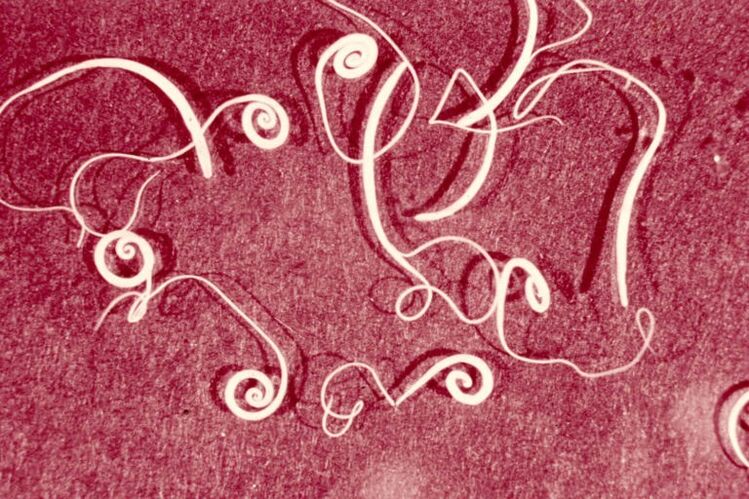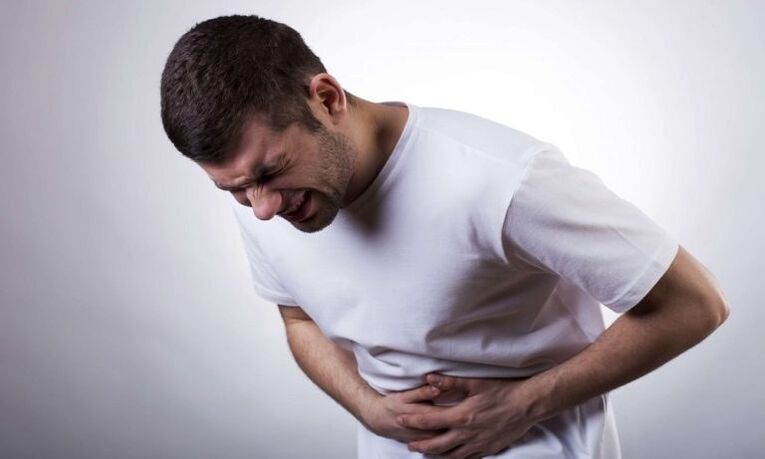The presence of parasitic organisms in the body not only leads to discomfort and the appearance of unpleasant symptoms, various diseases develop, and health conditions worsen. Some types of parasites are not only threatening health but also lives. Dangerous neighborhoods cause decreased immunity, damage to the integrity of internal organs. Doctors sound the alarm, more than eighty percent of all diseases are caused by parasites or as a result of their life in the body. The statistics are alarming: every fourth adult and every second child is infected with helminths. Often, a person is unaware of the presence of worms until the condition becomes critical. Where do Human Worms Come From? However, infection occurs even in people who really follow the recommendations and try to exclude all contact with the pathogenic environment. Let's try to find a way to prevent infection, which causes the development of helminthic invasion.
The main route of infection: from which the worm originates

There are various ways to be infected with parasites. Worms are a problem for someone of all ages, although children are the most vulnerable category. They get to know the world by actively exploring objects according to taste, and have no constant hygiene habits. Babies are infected mainly due to the use of plant products without initial washing, violation of hygiene rules after contact with pets, licking dirty fingers. Worms in children are a very common occurrence.
The mechanism of infection with parasites by adults is almost the same. A large number of helminthiasis develop as a result of neglect of the rules of personal hygiene. Often, infections occur as a result of contact with sick people or animals, the use of contaminated items and household items. With inadequate heat treatment of meat and fish, there is a high risk of getting sick. Biohelminthiases penetrate the human body in this way. To minimize the possibility of pathological development, it is necessary to cook, cook or fry fish and meat thoroughly. Drinking contaminated water, swimming in an unknown body of water, or working in a garden with unprotected hands can cause worms to appear on an adult’s body.

The main routes of infection are:
- Mouth-fecal. Pathogens enter the body through contaminated food or water. This group of helminths mostly live in the gut. The pathogenic organism goes through a full developmental cycle and releases eggs, which come out with the feces of the host. Upon entering the external environment, the parasite is introduced into the body of another host.
- Through the ground. Parasite transmission in this way occurs due to human contact with contaminated soil. The method of transmission is similar to the previous version of the infection, but the eggs enter the soil not only with feces, but also with other secretions from the host body.
- Hematogen. Parasites enter the host organism through insect bites. Infected blood suckers carry helminth eggs.
- Biohelminthiasis. A complex infection system in which there are several secondary and permanent hosts.
The life cycle of parasites
Different types of helminths have their own developmental cycles, but their general scheme is the same: larvae develop from eggs, which eventually turn into sexually mature adult individuals.
Taking into account the uniqueness of development, there are three groups of parasites:
- contact;
- geohelminths;
- biohelminths.
Infection with contact parasites usually occurs through dirty hands. Geohelminths thrive without an intermediate host. Eggs are cooked on the ground. This group of parasites enters the human body through the oral cavity or skin. Biohelminths have the most complex expansion cycles with several intermediate hosts.
Symptoms of helminthiasis
After the penetration of the parasite into the human body, the first symptoms can appear immediately or a few seconds, when the number of worms increases significantly or the only representative of the species increases in size. The first shot is taken by the immune system.

Signs of deteriorating health generally appear:
- fatigue;
- lack of sleep;
- indifference;
- lethargy;
- dizziness.
Such symptoms are caused by a lack of nutrients and components absorbed by parasites, which damage the human body. People with helminthiasis become weak and irritable. Specific symptoms gradually appear, which depend on the type of helminth, localization on specific organs.
Worms in the liver
Parasites enter organs through the blood or orally. As the disease progresses, the following symptoms are observed:
- Body temperature rises several degrees. With a mass of parasites in the organ, necrosis, abscesses can begin, in case the temperature rises to a critical figure.
- The mucous membranes and skin turn yellowish because the glands produce large amounts of bilirubin.
- On palpation, enlargement of the liver is felt. The patient feels the rupture of the organ, he presses on the nearby tissue. Began to interfere with abdominal pain on the right side, breathing became difficult.
- Clinical blood tests showed an increase in eosinophil content.
- Often worried about nausea, discomfort in the mouth. Some patients complain of dizziness.

Intestinal worms
A large number of parasites prefer to live in the intestine. It is an ideal place to feed, grow and reproduce. In the intestine, sexually mature individuals release eggs, which enter the environment with the patient’s feces.
Symptoms of localization of helminths in these organs are as follows:
- Digestive disorders in the form of constipation or diarrhea, nausea and vomiting.
- Food conversion, complete loss of appetite.
- Change eating habits. The patient rejects his favorite dish, preferring an unusual taste.
- Presence of blood in stool.
- Very severe abdominal pain.
- The presence of parasites or their fragments in the stool, vomiting.
- Intestinal obstruction.

Worms in the lungs
The worms enter the lungs with the bloodstream. The localization of helminths in the respiratory system causes great danger to the body. Symptoms of lung damage are as follows:
- Chest ache.
- Limit coughing with expectations.
- Increased body temperature.
- Heard a wheezing in his chest.
- Difficulty breathing, development of asthma components.
With massive lung implantation, there is a high probability of complications in the form of pneumonia, airway obstruction, necrosis or abscess.
Worms in the eyes
The localization of helminth larvae in the eye leads to serious vision problems. Symptoms of the presence of parasites in the eyes are as follows:
- Seals visible under the eyelids.
- Pain and movement in the eyes.
- A sharp decrease in visual acuity.
- Changing the position of the eyeball.
- Progressive strings.
- Continuous discharge from the eyes.

Worms in the brain
The presence of parasites in the brain is one of the most serious conditions, as helminths damage nerve fibers irreversibly. Often, the disease ends in the death of the patient.
Symptoms of brain parasites are:
- Violent migraine headaches.
- Dizziness.
- Nausea and vomiting.
- Admission of neuropsychiatric disorders.
Helminthic invasion therapy
Parasites in the bodies of adults and children are often detected. Awareness of the presence of individual pathogens in one’s body is quite unpleasant. It is necessary to start proper treatment in a timely manner. Only a qualified specialist can prescribe antihelminthic medications.
To confirm or disprove your suspicions, you need to be examined and tested.
Doctors recommend methods for detecting helminths: complete blood count, stool, urine, ultrasound or X-rays, endoscopy or CT. Based on the type of parasite identified, treatment is prescribed. The pharmaceutical industry is poised to offer many effective remedies against worms. Treatment can be done with the use of medication once or a course. It all depends on the type of parasite, the place of localization, the quantity, and even the general condition of the patient.
When detecting the fact of helminthiasis in the family, it is recommended to undergo treatment of parasites in the body for all people living together. Human helminths are not only unpleasant, but also a very dangerous disease that threatens the development of many complications. You cannot ignore the condition or use your own medications. Only a doctor can prescribe medication that is as effective as possible and harmless.
There are folk recipes that can be a strong support for the body against helminthiasis. This drug can be used as an adjunct to drug therapy or for prophylaxis. It should be understood that you cannot take traditional medicine on your own. Initially, you need to find information about the parasite, knowing the place of its localization. If possible, your doctor will recommend adding alternative medication prescriptions to your therapy regimen.
The following herbal ingredients are considered the best folk remedies: pumpkin seeds, wormwood, ginger, herbal preparations, tansy, buckthorn.

Precautions
Worm infections are not as dangerous as seen at first glance. The disease is detrimental to health, negatively affecting the general condition. For infants, helminthiasis is much more dangerous: the child is left behind in its development, often ill.
Prevention measures are simple and easy to do, you just need to form some good habits:
- Wash hands before eating, after walking, visiting public places.
- Carry out pet cleaning.
- Eat only washed plant foods.
- Do not drink plain water, do not swim in unknown bodies of water.
- Work in the garden or vegetable garden with gloves.
- Prepare meat and fish dishes carefully.
- Refuse to buy food at the spontaneous market.
And although it is impossible to fully protect from helminthic invasion, it is very possible to reduce the risk by following the recommendations of experts. Don't get sick!



























